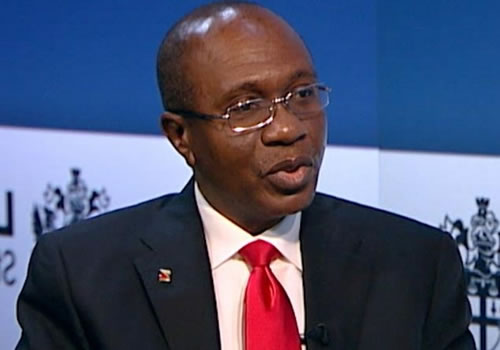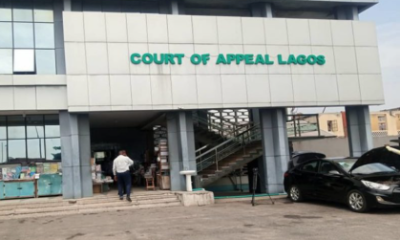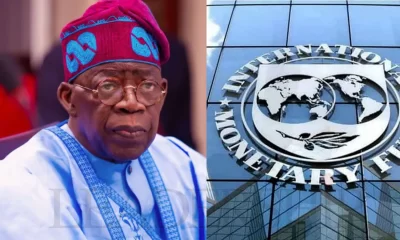Business
TSA: Banking industry may lose over N2tr, risks cash crunch
Published
10 years agoon
By
Publisher
By ODUNEWU SEGUN
AS the federal government goes ahead with its Treasury Single Account (TSA) policy, the profits accruing to the banks through lending, driven substantially by net interest margins, are expected to be crippled.
The reason, according to analysts, is that the single account which is supposed to unify and monitor incoming and outgoing government transactions for transparency and accountability will deny the banks funds belonging to MDAs currently in the vaults of the banks.
Treasury Single Account is a public accounting system under which all government revenue, receipts and income and collected into one single account, usually maintained by the country’s Central Bank and all payments done through this account as well. The purpose is primarily to ensure accountability of government revenue, enhance transparency and avoid misapplication of public funds. The maintenance of a Treasury Single Account will help to ensure proper cash management by eliminating idle funds usually left with different commercial banks and in a way enhance reconciliation of revenue collection and payment.
“But, there is the fear of liquidity squeeze due to the unification of government accounts by the Buhari administration. The fear is borne out of the fact that with the Monetary Policy Rate at 13 per cent, Cash Reserve Ratio (CRR) at 30 per cent, its implementation would be tough for banks,” says a senior industry player.
In fact, the report on accounts of banks with CBN shows that as at beginning of this current quarter, banks’ total public sector deposits was N1.3 trillion but additional net flows from Federation Accounts Allocation Committee (FACC) as at end of last month (about N240 billion) as well as expected inflows by end of this month may push the figure close to N2.2 trillion.
Also, returns of lenders in Nigeria, driven substantially by net interest margins, they further argue, would further be crimped by the TSA implementation.
This is because the single account will deny the banks of over N60 billion funds belonging to Ministries, Departments and Agencies (MDAs) currently in the vaults of banks.
Also, the publicised stance of Buhari’s administration on corruption is causing panic in the lender community, as there are concerns that its implementation, which fully begins this week, would deny the banks of the easy cash which they had been playing with.
The implementation, they argue, would further weaken earnings in the sector based on the fact that these banks depend on the accounts for business. As it is, it is expected that all receipts by MDAs will now be made directly to the Consolidated Revenue Fund (CRF) at the CBN through an electronic channel process known as e-Collection.
National Daily findings showed that the TSA policy would translate to a significant decline in banks’ deposit, which is also expected to constrain banks’ ability to grow credit in the economy. At the moment, total deposit in the system is put at about N7.1 trillion and a total government deposit with DMBs estimated at N3.5 trillion, if the TSA is carried out to the letter, affected commercial banks’ creation power would be reduced as a shallow deposit base.
Furthermore, the findings also revealed that the TSA would likely remove about N557.7 billion from the banks and a potential reduction in total banking industry net profits of between N32.57 billion and N65.14 billion.
Head of Research at Sterling Capital Limited, Mr. Sewa Wusu, explained that the policy will affect the flow of liquidity in the banking system, but added that decision would bring about transparency and effective revenue management for the government.
“The liquidity in the banking system will definitely be affected. This is because once the banks collect government’s funds, it will be sent directly to the TSA. The free funds some banks used to enjoy will no longer be there,” Wusu added.
According to the Group Managing Director of First Bank Nigeria, Bisi Onasanya, with the reduction in government deposits, reduction in oil price and the ongoing fiscal restructuring by the CBN, the profit declaration of most of the commercial banks at the end of this financial are likely to be affected unless the banks creates other means of contending with the issues.
“That has almost necessarily moved away public accounts at the federal level from the vaults of commercial banks into the central bank. That has reduced the liquidity in the financial sector. Liquidity is shrinking also and you have to look at the impact on your liquidity ratio and liquidity management in all the things that you do,” he said.
The report on accounts of banks with CBN shows that as at beginning of this current quarter, banks’ total public sector deposits was N1.3trn but additional net flows from Federation Accounts Allocation Committee, FACC, as at end of last month, about N240bn as well as expected inflows by end of this month may push the figure close to N2.2 trn by the time TSA would have fully begun.
Compounding the commercial banks’ woe is the fact that some states who which have helped cushion the outflow of federal government’s funds are also taking cues from the federal government.
For instance, Kaduna has already closed its over 300 accounts with several commercial banks, taking away a whopping N4bn from the banks. Lagos State is expected to follow suit while Ogun State stated almost four years during the first term of Governor Ibikunle Amosun.
But while financial experts are quick to point out the adverse effects on the banks, others opined that the TSA is creative and help to tackle corruption in all government agencies and parastatals. .
Armstrong Oyakhilome, an agricultural investment expert and CEO of Inotech Farms explained that the policy would not have much effect on the banks. He said most of the banks now focus more on industries rather than government establishments. “In the area of marketing, Banks now target industries, market women and other small scale and large scale businesses to create their capital base.
According to Hon Olayinka Ogundimu, an economics by training and the legislator representing Agege 11 at the Lagos State House of Assembly, the TSA will addresses the issue of unscrupulous movement of money by some government agencies. He said it will allow government at any point in time to determine how much it has at a glance.
Chief Executive, Economic Associates, Dr. Ayo Teriba, said it is absolutely necessary for government to determine what comes to its cover at every given time.
Teriba noted while as guest on channel Television programme that before, many government agencies had the autonomy to receive money on behalf of the federal government or on behalf of the federation account and they had the liberty to spend part of the revenue because they were only required to remit only a fraction of the amount that they declared.
Though Section 80 (1) of the 1999 Constitution as amended states “All revenues, or other moneys raised or received by the Federation (not being revenues or other moneys payable under this Constitution or any Act of the National Assembly into any other public fund of the Federation established for a specific purpose) shall be paid into and form one Consolidated Revenue Fund of the Federation”; successive governments have continued to operate multiple accounts for the collection and spending of government revenue in flagrant disregard to the provision of the constitution which requires that all government revenues be remitted into a single account.
It was not until 2012 that government ran a pilot scheme for a single account using 217 ministries, department and agencies as a test case. The pilot scheme saved the country about N500 billion in frivolous spending. The success of the pilot scheme motivated the government to fully implement TSA, leading to the directives to banks to implement the technology platform that will help accommodate all MDA’s in the TSA scheme. The recent directives by President Mohammed Buhari that all government revenues should be remitted to a Treasury Single Account is in consonance with this programme and in compliance with the provisions of the 1999 constitution.
You may like


Appeal Court nullifies Emefiele’s asset forfeiture, Orders retrial


Naira gains 1.28% in official market in May amid oil price risks, currency volatility


Tinubu: Diaspora APC chieftain tasks local banks on reforms


Alleged corruption: EFCC witness details wow Emefiele allegedly received $17.1 million in cash


FG to auction 753 housing units forfeited by Ex-CBN Gov. Emefiele in Abuja


Nigeria’s debt rises to N74.38trn, $44.9bn despite IMF loan repayment
Trending

 Health6 days ago
Health6 days agoDeclassified CIA memo explored concealing mind-control drugs in vaccines

 Entertainment1 week ago
Entertainment1 week agoSimi addresses resurfaced 2012 tweets amid online backlash

 Crime7 days ago
Crime7 days agoSenior police officers faces retirement after Disu’s appointment as acting IGP

 Comments and Issues1 week ago
Comments and Issues1 week ago20 Critical Fixes to Save Nigeria’s Democracy from Electoral Fraud

 Latest1 week ago
Latest1 week agoICPC yet to respond to El-Rufai’s bail request as arraignment date looms

 Football1 week ago
Football1 week agoMartínez ruled out of Everton clash with calf injury

 Comments and Issues1 week ago
Comments and Issues1 week agoGovernance Before Guns: Why Institutional Coherence Determines Security Outcomes

 Comments and Issues1 week ago
Comments and Issues1 week agoWho owns Abacha’s loot? Nigeria and the fight for the people’s money

